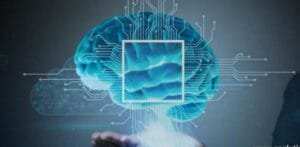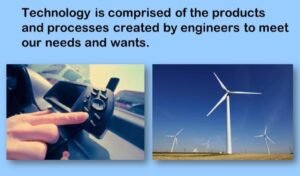What is Technology?
Technology surrounds us. Technology is a fundamental force driving human progress, from the smartphone in your pocket to the satellites orbiting the Earth. But what exactly is technology? Is it just machines and gadgets, or does it play a bigger, more important role in society

In this comprehensive article, we’ll explore the true meaning of technology, its evolution through history, the various types of technologies that define modern life, its impact on society, and the ethical challenges it brings. We’ll also look ahead to the future of technology and the role it will play in shaping tomorrow.
Defining Technology: More Than Just Tools

It is the use of systems, methods, tools, and processes to solve problems, meet human needs, or accomplish particular objectives.
There’s Geeks word’s techne, Which Megan’s “crafts” or “skills,” and logon, which means “world’s” or “discoursess,” are the sources of the terminal. Originally, it referred to the art of marking thing’s. Today, it has expanded to include everything from the wheel and the printing press to supercomputers and artificial intelligence.What is Technology?
Technology is Not Just Electronics
Electronics are only one aspect of technology. While many associate technology with modern electronics, it encompasses a far wider range of inventions. A hammer is technology. Technology can be ancient or futuristic, physical or digital, basic or complex. They all serve the same purpose: to make life easier, more productive, or more meaningful.
A Brief Introduction to Technology
1. Ancient and primitive technology
There earliest human’s drafted stones toolset to hunter and gathered. The beginning of technological development can be traced back to the development of basic agricultural tools, the wheel, and the fire. Theses primitives technologies enables early-stage human’s to survived and thrives in Harsh environment’s.
2. The Agricultural Revolution
Roughly 10,000 years ago, the shift from hunting and gathering to agriculture transformed human society. Technologies suchas as flows, irrigations systems, and food storages enabled permanently settlements and populations Growth.
3. The Classical and Medieval Periods
Engineering, astronomy, and mathematics led to innovations like aqueducts, water clocks, and early mechanical devices in ancient civilizations (Greek, Roman, Egyptian, and Chinese). Agriculture, printing, and navigation all improved during the Middle Ages.
4. The Age of Industrialization
There 18th and 19th centuries-old markedly a burning points in humans history’s. Inventions like the steam engine, spinning jenny, and telegraph revolutionized manufacturing, communication, and transportation. Urbanization reshaped societies as cottage industries were replaced by factories.
5. The Digital Revolution and the 20th Century Telephones, radios,
airplanes, electricity, and eventually computers came to be essential components of everyday life. The invention of the internet in the late 20th century created a global digital network, ushering in the Information Age.
6. 21st Century and Beyond
Today, technologies like artificial intelligence, robotics, nanotechnology, and biotechnology are transforming fields from medicine to education. Conceptus likes smart cities, spaces colonisation, and brain-computer interfaces are no longer science-technology science fiction.What is Technology?
Categories of Technology
Technologies by Types Technology is a vast ecosystem of categories and fields rather than a single idea. Let’s looks at someone of the Major typesetting of Technology’s:
1. Information and Communication Technology (ICT)
ICT refers to the infrastructures and device’s that’s Store, retrieved, transmitted, and manipulated Data. It includes computers, mobile phones, the internet, cloud computing, and software applications.What is Technology?
2. Medical and Healthcare Technology
Telehealth platforms, robotic surgery, MRI machines, and pacemakers are all examples of medical technology. It improves diagnostics, treatment, and overall patient care, leading to longer and healthier lives.
3. Industrial and Manufacturing Technology
This encompassed machinerys, tool’s, and systems used to produced goods efficiently. This field is dominated by robotics, computer-aided design (CAD), automation, and 3D printing.
4. Technology for Transport
Innovations in transportation have revolutionized travel and logistics. Electric vehicles (EVs), airplanes, trains, and autonomous vehicles all increase global mobility and economic activity.
5. Technology for Energy
Energy technology deals with how we generate and consume power. Renewable energy sources like hydropower, solar power, wind power, and geothermal energy are taking the place of or supplementing traditional fossil fuels. Battery technology and smart grids are also vital in this area.
6. Environmental Technology
Climate modeling systems, water purification, waste management, pollution control, and sustainability are all included in this field. The reduction of human impact on the environment is the objective of green technologies.What is Technology?
7. Space Engineering

Space exploration, rocket propulsion, satellite systems, and even plans for interplanetary colonization are all part of this field. Space tech not only explores the universe but also provides GPS, communication, and weather data on Earth.
8. Education Technology
Digital tools are used in EdTech to improve education. Examples include virtual classrooms, educational apps, learning management systems (LMS), and interactive simulations.What is Technology?
How Technology Impacts Society
The impact of technology is extensive, affecting every facet of life:
1. Communication
Social media, messaging apps, and video conferencing have reshaped how we interact. News travels quickly. Ideas spread quickly across the globe.
2. Education
Knowledge is now available to everyone thanks to technology. With interactive e-books, virtual labs, and online courses, learning can be done in a variety of ways and from anywhere in the world.
3. Healthcare
From wearable fitness trackers to AI-assisted surgeries, technology is revolutionizing medicine. It enables remote care, personalized treatment, and real-time health monitoring.What is Technology?
4. Economy and Business
E-commerce, fintech, blockchain, and digital marketing have transformed how businesses operate. Data-driven decisions are made possible by technology, which also connects global markets.
5. Entertainment
Streaming services, video games, and virtual reality (VR) have all contributed to the development of immersive and varied forms of entertainment. Artists and creators can now reach audiences without having to worry about traditional barriers.
6. Environment and Sustainability
Green building materials, environmental monitoring systems, and renewable energy all contribute to the fight against climate change and the promotion of sustainable living.
Challenges and Ethical Issues
1. Security and Privacy of the Data
Because so much personal information is stored online, cybersecurity is essential. Concerns about data breaches, identity theft, and surveillance are on the rise.
2. Divided Digitally
Not everyone has equal access to technology. A lack of infrastructure and affordability can exacerbate social and economic inequality.
3. Job Displacement
AI and automation have the potential to replace human workers, particularly in the service and manufacturing industries. Education and retraining are essential to deal with this shift.What is Technology?
4. Impact on the Environment
Mining for electronic materials, e-waste, and the use of energy in data centers all contribute to pollution and resource depletion.
5. Using AI and biotechnology in an ethical way AI can be skewed, opaque, or used improperly for surveillance. Genetic engineering and cloning raise concerns about ethics, consent, and long-term consequences.
6. Making Use of Technology
A lack of critical thinking skills, addiction, and mental health issues can result from an excessive reliance on digital tools.
Future and Emerging Technologies
New and upcoming technologies The rate of innovation continues to rise. Here are some promising areas to watch:
Artificial Intelligence (AI) and Machine Learning
Voice assistants and fraud detection are powered by AI. Future AI may perform complex tasks like legal research, scientific discovery, or autonomous decision-making.
Quantum Computing
In contrast to conventional computers, quantum computers can perform calculations at an unprecedented rate. They could revolutionize cryptography, material science, and more.What is Technology?

Real-time monitoring and automation are made possible by the Internet of Things (IoT), which connects everything from thermostats to factory equipment.
5G and Beyond
Era Self-driving cars, gaming, telemedicine, and streaming will all benefit from faster wireless networks.
Virtual Reality (VR) and augmented reality (AR) The way employees are trained, phobias are treated, and media experiences are being altered by these immersive technologies.
Genetic coding and biotechnology CRISPR and gene editing could eliminate hereditary diseases and enhance human capabilities—but ethical oversight is key.
Space Exploration and Colonization
Private companies like SpaceX are pushing the boundaries of human space travel, with potential plans for lunar bases and Mars colonization.
Human Responsibility and Technology
Technology and responsibility for humans The way we use technology is more important than the technology itself. It can solve global problems like poverty and disease, or it can be misused for control, manipulation, or profit.
As technology users, creators, and regulators, we must guarantee:What is Technology?
Ethical development: AI, genetic research, and surveillance must respect human rights and dignity.What is Technology?
Sustainability: Innovation must support long-term survival while minimizing environmental damage.
Technology should benefit everyone, regardless of where they live or how much money they make.
Transparency: People should understand how technologies work and how decisions are made.
Conclusion:Technology as a Force for Good
Technology is more than wires and circuits-it is the embodiment of human creativity, intelligence, and ambition. It helps us explore the cosmos, cure diseases, connect cultures, and imagine new worlds.What is Technology?
But it also carries risks that must be addressed with wisdom and foresight.
As we move forward, our challenge is not only to invent but to invent responsibly.What is Technology?
The future of technology is not just about what it can do-it’s about what it should do.
